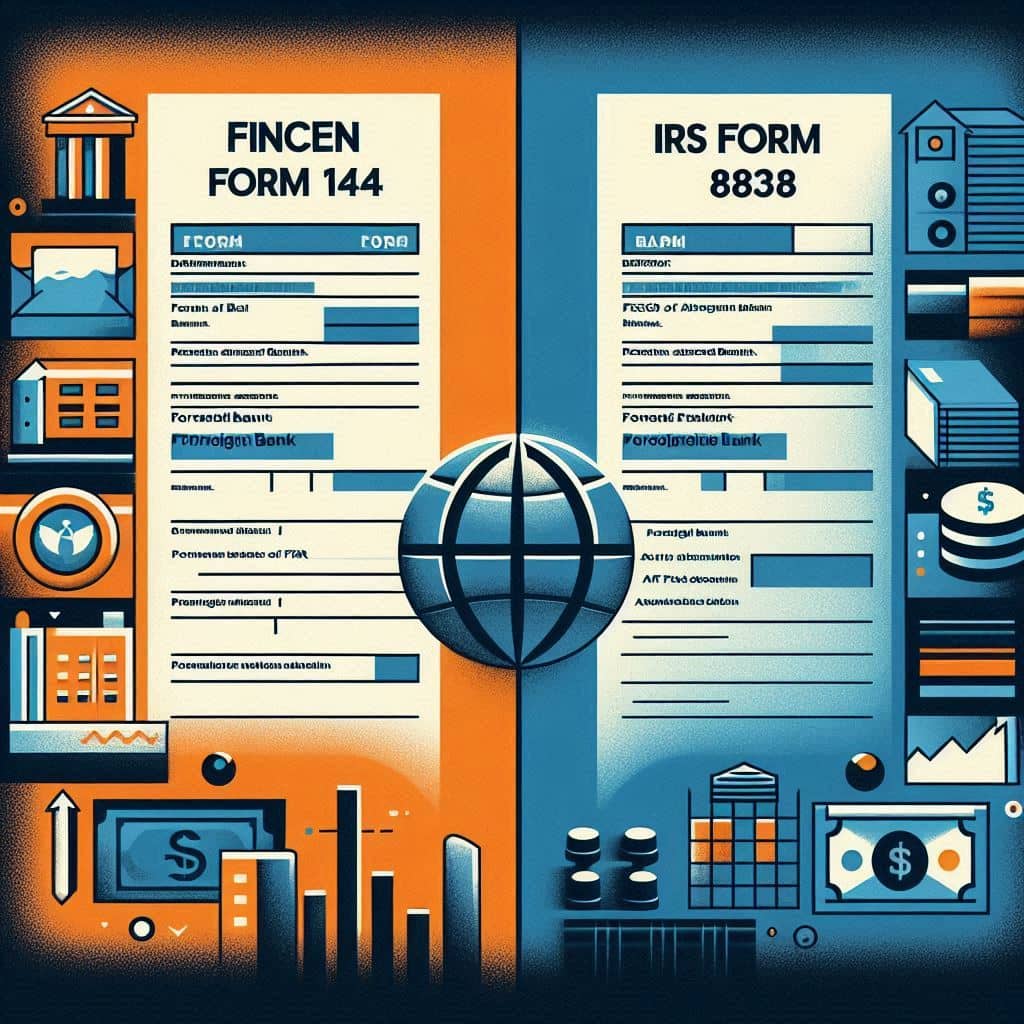FBAR Explained: What You Need to Know
FBAR Explained
If you’re a U.S. citizen or resident tethered to foreign financial holdings, mastering the intricacies of FBAR regulations is non-negotiable. FBAR, the shorthand for Foreign Bank Account Report, represents more than a bureaucratic hoop—it’s a compulsory submission to the U.S. Treasury for divulging foreign financial account activity. At its core, this statutory obligation seeks to trace offshore capital and suppress illicit tax evasion. This exposé unravels the finer threads of FBAR filing, decoding the FBAR form, deciphering reporting duties, and guiding you through seamless FBAR filing online.

Why FBAR Isn’t Just Another Piece of Red Tape
The FBAR isn’t your garden-variety tax document—it’s a binding legal imposition. Any moment throughout the fiscal year in which your foreign account balances cumulatively surpass $10,000, you’re summoned to submit the FBAR form, formally recognized as FinCEN Form 114. This submission finds its home with the Financial Crimes Enforcement Network (FinCEN), an enforcement limb of the U.S. Treasury.
Overlooking your FBAR filing responsibility carries weighty repercussions. The Internal Revenue Service wields this data as a surveillance lens to expose offshore concealments and ensure global income transparency.
Who Falls Under the FBAR Umbrella?
The obligation to furnish an FBAR applies not just to individuals but a suite of entities, including:
- U.S. citizens and lawful permanent residents
- Domestic legal structures—corporations, partnerships, estates, and trusts
- Any party with either financial stake or signatory dominion over offshore accounts exceeding $10,000 at any temporal point
Profit or loss within these accounts is irrelevant—mere ownership or authority triggers the compliance mechanism.

Which Accounts Trigger the Reporting Tripwire?
Contrary to popular misconception, FBAR reporting encompasses a broad spectrum of foreign-held assets, not solely standard bank deposits. Required disclosures span:
- Offshore checking and savings accounts
- Foreign brokerage and investment holdings
- International mutual funds linked to non-U.S. financial bodies
- Overseas life insurance policies with vested cash value
- Foreign-based retirement schemes
Reporting entails aggregating the total value across all qualifying accounts. Omitting even one can incur significant punitive consequences.
Mastering FBAR Filing Online: A Digital Path
Since 2013, the paper trail has given way to electronic terrain—FBAR forms must now be filed digitally via the BSA E-Filing System on FinCEN’s official domain. Here’s a streamlined blueprint:
- Enroll on the BSA E-Filing portal
- Assemble all pertinent data—account identifiers, financial institution names, and high-water balances
- Populate FinCEN Form 114 with precision
- Submit the completed dossier ahead of the statutory cut-off
This online submission accelerates approval and minimizes clerical blunders—paper submissions are now obsolete.
Critical Timelines and Automatic Extensions
The FBAR deadline falls on April 15, covering the preceding calendar year. Thankfully, an automatic extension breathes until October 15, with no auxiliary paperwork required. Nonetheless, early submission remains the wisest safeguard against last-minute entropy.

Penalties: The Steep Cost of Oversight
Neglecting your FBAR obligations—intentionally or by oversight—can precipitate hefty sanctions:
- Non-willful infractions may incur fines up to $12,921 per account annually
- Willful disregard, on the other hand, invites fines as steep as $129,210 or 50% of the account’s value, depending on which is greater
- In egregious cases, criminal indictment and incarceration aren’t off the table
Given these formidable outcomes, FBAR neglect is a gamble best not taken.
Frequent Pitfalls and How to Sidestep Them
To remain in regulatory good graces during your FBAR filing online, heed these cautionary notes:
- Ensure no account—regardless of size—is left off the roster
- Scrutinize account identifiers and bank titles for clerical fidelity
- Honor the digital-only rule; paper filings are disqualified
- Beat the deadline rather than race it
Meticulous attention can save you from headaches—and potentially, indictments.

FBAR and FATCA: Not Twins, Just Siblings
Two similar-sounding acronyms—FBAR and FATCA—often spark confusion. Here’s how they diverge:
- FBAR (FinCEN Form 114) is submitted digitally and focuses on foreign accounts over $10,000
- FATCA (IRS Form 8938) piggybacks on your federal tax return, targeting foreign assets with different value thresholds
Depending on your portfolio’s breadth, you might need to satisfy both obligations.
Document Retention: Your Compliance Arsenal
Never toss out foreign account statements, agreements, or transactional archives. These documents form the backbone of your FBAR defense should the IRS initiate a query or discrepancy check.
When It’s Time to Defer to a Professional
Entangled in a web of multi-nation holdings or convoluted trust structures? Then enlisting a tax professional is not indulgent—it’s essential. An experienced hand ensures your FBAR filing online is done not just correctly, but with strategic foresight.
Post-Filing: What Comes Next?
Once you dispatch your FBAR, FinCEN sends a receipt of acknowledgment. Subsequently, the IRS may align your FBAR details with your tax return. Any mismatches could summon requests for clarification or deeper scrutiny.

Final Impressions
Holding offshore financial accounts comes with unavoidable statutory strings—filing the FBAR form is not optional. Embrace the online system for streamlined, compliant submission. Understand your duties, safeguard your documentation, and meet the deadline. When uncertain, lean on a qualified professional’s expertise.
Staying vigilant about FBAR reporting isn’t just about evading penalties—it’s about shielding your financial name and standing tall under the law’s gaze.
FAQs
What counts as a “foreign account” under FBAR rules?
Do I need to be making money to worry about FBAR?
I’m a dual citizen/green card holder. Do I need to file FBAR?
What if I forgot to file in past years?
Is FBAR the same as FATCA? Or do I need to file both?
Enjoyed this post? 👉 Click here to read our other blogs for more insights!
💬 Have thoughts or questions? Drop a comment below—we’d love to hear from you!


